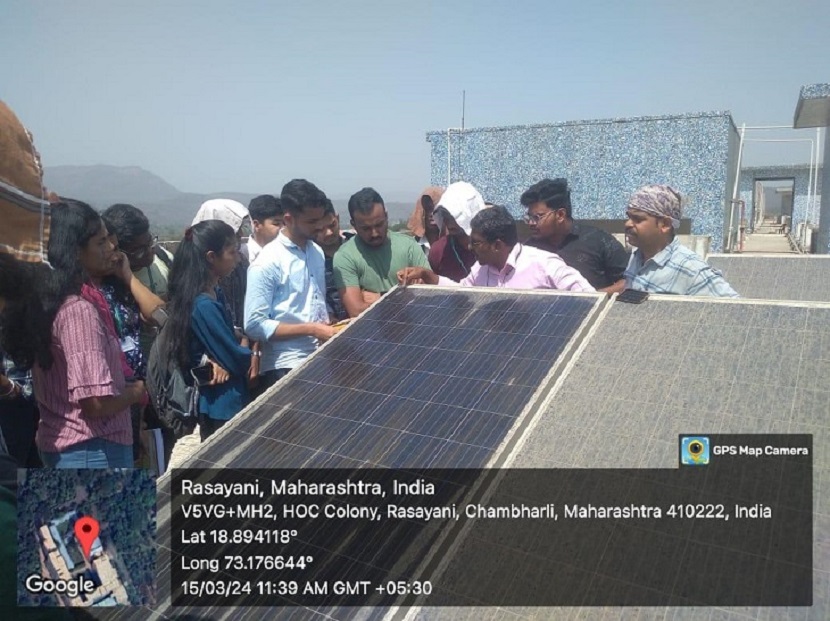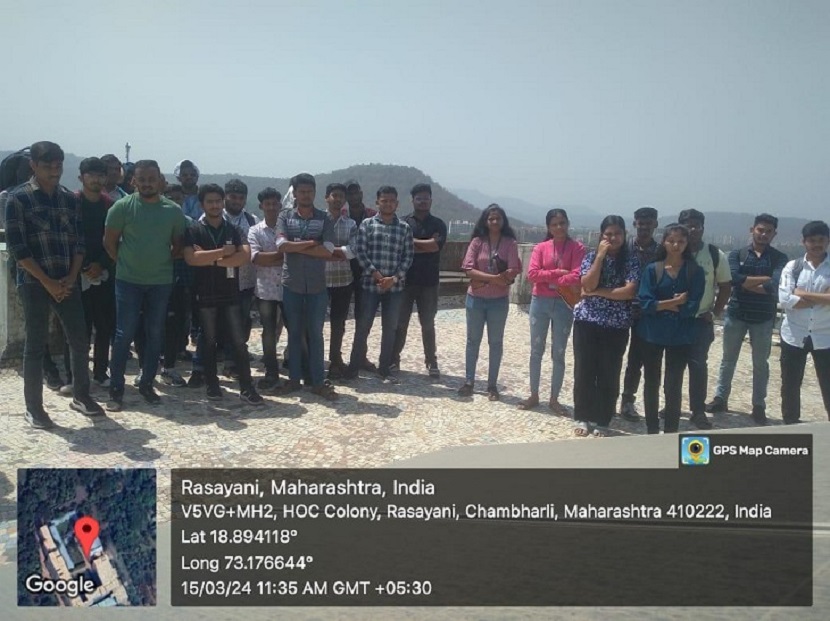For First Year Students on 15th March, 2024
By Prof. Nilesh Raut & Prof Asokan S
Workshop Title: Exploring Solar Energy: A Beginner’s Guide
Introduction: Welcome, first-year students, to the fascinating world of solar energy! In this hands-on workshop, we will embark on a journey to understand the basics of solar energy, its significance, and how it shapes our sustainable future.
- What is Solar Energy?
- Solar energy is derived from the sun’s radiation, which reaches the Earth in the form of sunlight.
- It is a renewable and abundant energy source, providing an eco-friendly alternative to traditional fossil fuels.
- How Does Solar Energy Work?
- Solar panels, also known as photovoltaic (PV) cells, convert sunlight into electricity through the photovoltaic effect.
- When sunlight strikes the solar panel, it excites electrons in the semiconductor material, generating an electric current.
- Benefits of Solar Energy:
- Clean and Sustainable: Solar energy production produces no greenhouse gas emissions, helping to combat climate change.
- Cost-Effective: With advancements in technology and decreasing costs, solar energy has become more affordable for homeowners and businesses.
- Energy Independence: Solar power allows individuals and communities to generate their own electricity, reducing reliance on centralized power grids.
- Applications of Solar Energy:
- Residential Solar Panels: Many homeowners install solar panels on their rooftops to generate electricity for their households.
- Commercial and Industrial Use: Businesses utilize solar energy to power their operations, reducing utility costs and environmental impact.
- Solar Farms: Large-scale solar installations, known as solar farms, generate electricity for utility-scale distribution.
- Challenges and Solutions:
- Intermittency: Solar energy production depends on sunlight availability, leading to fluctuations in output.
- Energy storage solutions like batteries help store excess energy for use during cloudy days or at night.
- Efficiency: Improving the efficiency of solar panels through research and development efforts is crucial for maximizing energy output.
- Public Awareness: Educating the public about the benefits of solar energy and incentivizing its adoption through policies and programs can overcome barriers to widespread implementation.
- Getting Involved:
- Explore Educational Opportunities: Consider studying renewable energy or environmental science to learn more about solar energy and its applications.
- Join Solar Energy Initiatives: Participate in local community solar projects or environmental organizations focused on promoting renewable energy adoption.
- Advocate for Change: Get involved in advocating for policies that support solar energy incentives and investments at local, national, and global levels.
Conclusion:
Solar energy holds immense promise as a clean, renewable, and sustainable energy source for the future. By understanding its principles, benefits, and challenges, we can contribute to a greener and more resilient world. As first-year students, you have the opportunity to be part of the solar energy revolution and shape a brighter tomorrow.







